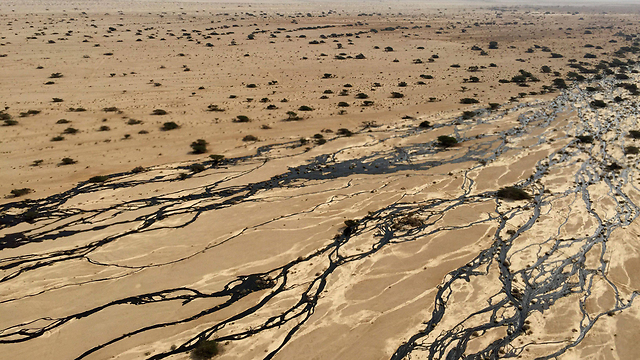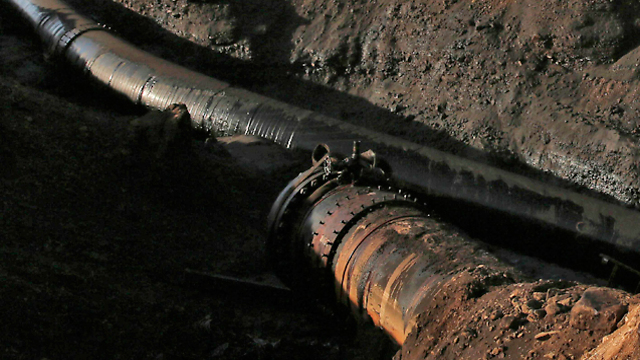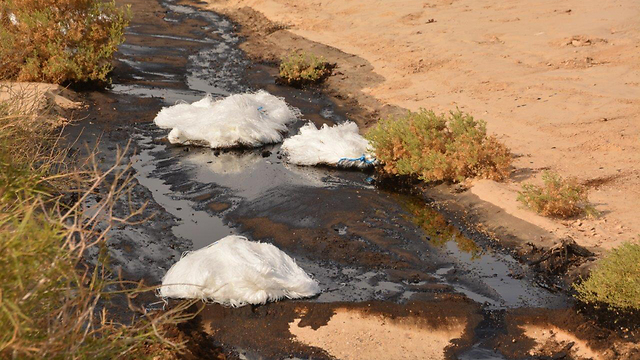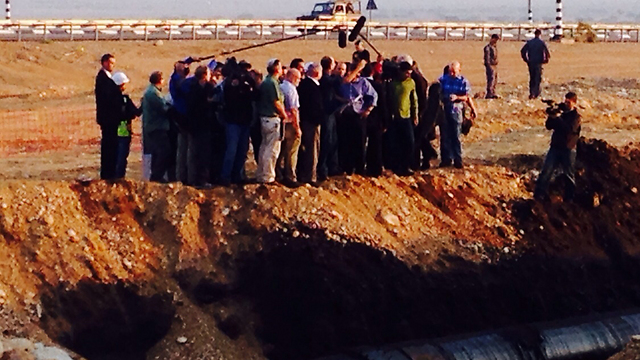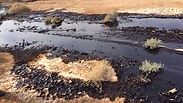
Israel fears floods will push spilled oil into Gulf
With up to 30mm of rainfall predicted, Israeli authorities rush to prevent some of the five million liters of oil that spilled out from entering channels leading to the sea.
Temporary dams placed Tuesday in the area affected by the disastrous oil spill near Eilat have so far been successful in averting flooding that would've exacerbated the extent of ecological disaster. The dams and other blocking measures were able to stop the oil from flowing outside the currently contaminated area and into the Gulf of Eilat.
Since a pipeline burst some 20 kilometers from Eilat last Wednesday, spewing about five millions liters of crude oil spilled into the Arava region, around 20 tons of polluted soil have been removed from the area and transported to a special site. The largest pools of oil have also been funneled away, but small pools still remain.
The oil spill has been branded one of the worst environmental disasters in Israel's history.
Temporary dams were placed in the expected path of the flood water to the sea, while methods to block the oil were deployed in the coastal area itself. According to data received by the Environmental Protection Ministry, rainfall of 10-30mm was expected in the area from the early morning, with subsequent flooding expected.
"There are small reservoirs along the length of the stream, so if there is a flood, the polluted water will enter the reservoirs", warned Guy Samet, director of the southern district at the Ministry of Environmental Protection.
"There is a boat on standby in Eilat that can separate the oil from the water, and there will be observation flights by light aircraft," he said. "We will work in the stream until the last minute before the flood."
The Eilat Ashkelon Pipeline Company, whose pipeline leaked, is also preparing to take infrared images of the rare acacia trees - a key factor in the local food chain - in order to assess the extent of the damage to them.
Almost a week after the disaster, Prime Minister Benjamin Netanyahu and Deputy Minister Ofir Akunis - who was entrusted with the Environmental Protection Ministry after it was left without a minister when Hatnua MK Amir Peretz resigned from his post - arrived at the affected area. On his way there via helicopter, Netanyahu watched the efforts made to stop the leak from spreading.
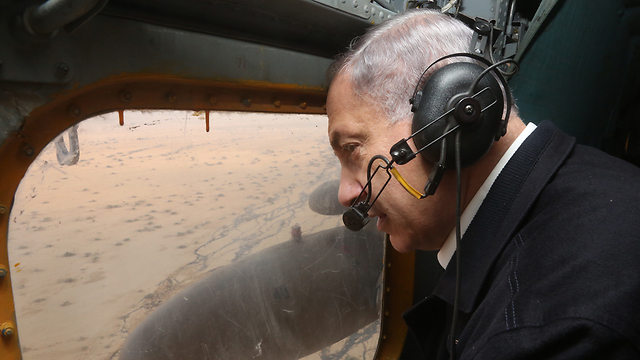
The stand-in director of the Environmental Protection Ministry and the Ministry's head of the southern district said there was no danger to residents' health as a result of the oil spill, and that the blocking measures set up in the leak area and along the path of the oil flow stopped the spreading of the contamination.
They went on to say that the Ministry was working in cooperation with the Israel Nature and Parks Authority, the Fire Department, the Israeli Police and the Arava and Eilat Drainage Authority to rehabilitate the area and clear away the contaminated ground.
"Our task is to protect the public's health, work to minimize the risk of the contamination reaching Eilat, and rehabilitate the nature reserve," Netanyahu said. "There's a series of actions to be done, it'll probably take a while. We'll allocate the necessary resources to protect the environment, this wonderful piece of land."
Deputy Minister Akunis vowed that he "intends to come here and be here until we know with absolute certainty that two main things were stopped: Primarily, the health hazard to the public that lives here, and of course everything involving the environmental issues."
Meir Ohayon contributed to this article











